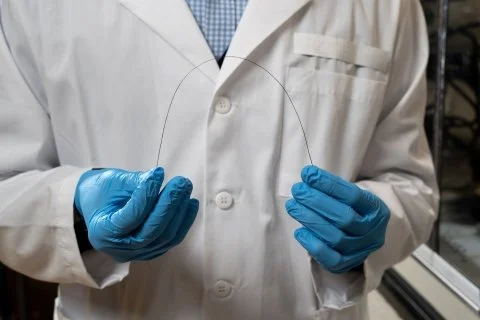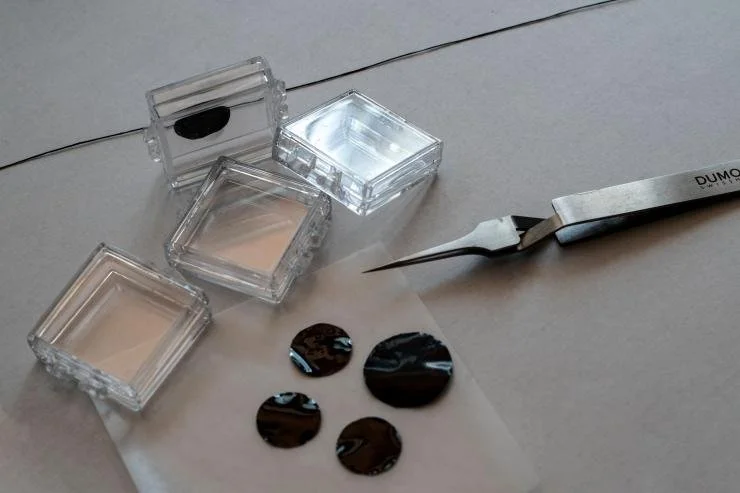Our group, led by Prof. Ryan Lively and postdoctoral researcher Seoyul Kim, has developed a low-cost direct air capture method using cold from LNG regasification and common physisorbents. This approach could cut capture costs to ~$70 per ton and enable large-scale CO₂ removal, especially in humid regions.
Read MoreGeorgia Tech is leading the charge in Direct Air Capture (DAC) technology, which acts like a giant vacuum for CO2, removing carbon from the atmosphere. With pioneering research, strategic partnerships, and policy influence, Georgia Tech's Direct Air Capture Center (DirACC) is advancing this crucial technology to combat climate change and help achieve net-zero emissions.
Read MoreGeorgia Tech researchers Ryan Lively, M.G. Finn, and Rampi Ramprasad have created a new kind of polymer membrane for separating crude oil into useful components. The membrane could greatly reduce the energy necessary for those initial separations. They’ve also created artificial intelligence tools to predict the performance of these kinds of polymer membranes, which could accelerate development of new ones.
Read MoreA team of researchers, including Professors Ryan Lively, Christopher Jones, and Matthew Realff, developed a direct air capture system with no fans, rapid heating, high energy efficiency, and lower cost. The system combines sorbent-coated carbon fibers, resistance heating, and passive, wind-driven air flow.
Read MoreA team of Georgia Tech ChBE researchers, led by Haley White, developed rigid, carbon membranes that effectively remove and concentrate small organic molecules (such as solvents) from water. Published in PNAS, this discovery challenges conventional understanding. The potential applications for these membranes are wide-ranging, with particular promise in biorefineries where valuable organic species are often highly dilute in aqueous media.
Read MoreSSEC faculty’s research on Direct Air Capture (DAC) (i.e., removing carbon dioxide from the air) was featured in a Georgia Tech news article.
Read MoreProfessor Ryan Lively has been awarded a Thomas C. DeLoach Jr. Endowed Term Professorship in Georgia Tech’s School of Chemical and Biomolecular Engineering (ChBE).
Read MoreGeorgia Tech researchers discover crystalline zeolites in a nanotubular (1D) shape.
Read MoreResearchers at Georgia Tech have uncovered new insights into the fabrication of carbon membranes that have the potential to drive significant cost savings once the solution for xylene isolation separation is scaled for industrial use.
Read MoreMatthew Realff, a professor in Georgia Tech’s School of Chemical and Biomolecular Engineering (ChBE), has been elected as a fellow of the American Institute of Chemical Engineers (AIChE) in recognition of his contributions to the chemical engineering field. A fellowship is the highest grade of membership in AIChE.
Read MoreWearing a face mask can protect yourself and others from Covid-19, but the type of material and how many fabric layers used can significantly affect exposure risk, finds a study from the Georgia Institute of Technology.
Read MoreNew membrane technology developed by a team of researchers from the Georgia Institute of Technology, Imperial College London, and ExxonMobil could help reduce carbon emissions and energy intensity associated with refining crude oil. Laboratory testing suggests that this polymer membrane technology could replace some conventional heat-based distillation processes in the future.
Read MoreGeorgia Tech researchers received a grant from the Food and Drug Administration to develop a way to continuously manufacture common antibiotics like amoxicillin. This process could help reduce costs and avoid shortages.
Read More












